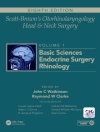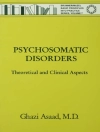In this book, leading world authorities on brain edema and neurological disorders/injuries and experts in preconditioning join forces to discuss the latest progress in basic sciences, translational research, and clinical management strategies relating to these conditions. The range of topics covered is wide, including microglia, energy metabolism, trace metals and ion channels, vascular biology, cellular treatment, hemorrhagic stroke, novel technological advances, anesthesia and medical gases, pediatric brain edema, neuroimaging, behavioral assessment, clinical trials, peripheral to central signaling pathways, preconditioning translation, and animal models for preconditioning and brain edema research. The book comprises presentations from Brain Edema 2014, the joint meeting of the 16th International Conference on Brain Edema and Cellular Injury and the 3rd Symposium on Preconditioning for Neurological Disorders, held in Los Angeles on September 27–30, 2014.
Inhaltsverzeichnis
Brain Edema and Anesthesia.- Clinical Management of brain edema.- Neural ICU and edema management updates.- Preconditioning symposium for edema and cellular injury.- Microglia in edema and cell death.- Opioid receptor and brain injury.- Energy metabolism after brain injury.- Metal ion in brain edema and tissue injury.- Vascular biology of brain edema.- Brain edema in pediatric neurological disorders.- Hemorrhage or stroke edema section.- CNS trauma section.- Neuroimaging of brain edema: advances and biomarkers.- Neurobehavioral testing for brain edema assessment.- Brain edema and cellular treatment.- HBO, NBO and other medical gas for edema and tissue protection.- New treatments and/or technologies for edema and cell death.
Über den Autor
Richard L. Applegate, II, is Professor, Vice Chair and Director of Anesthesiology Research in the Department of Anesthesiology, Loma Linda University School of Medicine, California, USA. His current research interests span basic science and clinical medicine and include: cardiovascular physiology; control of circulation; outcome impact of physiologic monitoring during and after high-risk surgery or in high-risk patients; methods to improve outcome following surgical brain injury, stroke, hypoxia-ischemia and cardiac arrest; and methods to mitigate vasovagal syncope. Dr. Applegate is the author of 39 journal publications and many book chapters. He is Section Editor (Anesthetic Gases) for Medical Gas Research and an ad hoc reviewer for a number of other journals.
Gang Chen is Associate Chief Neurosurgeon in the Department of Neurosurgery, First Affiliated Hospital of Soochow University, Suzhou City, Jiangsu, China. He has long been involved in research into subarachnoid hemorrhage (SAH) and has presented an innovative therapeutic principle of “timely and appropriate policy”, with targeting of oxidative stress in early brain injury (early phase), immuno-inflammatory responses in cerebral vasospasm (middle phase), and synapse protection in cognitive dysfunction based on anti-inflammation and anti-oxidation treatment (late phase). As first or corresponding author, Dr. Chen has published 33 articles in leading journals. He has won provincial and ministerial level scientific and technological progress awards three times and holds three national invention patents. He hopes to create more precise neuroprotective drugs for SAH.
Hua Feng is a neurosurgical professor, doctoral supervisor and chief physician who, since 1999, has been Director of the Department of Neurosurgery, Southwest Hospital of the Third Military Medical University, Chongqing, China. He is also a visiting professor at the University of Toronto, Canada. His major researchinterests include cure and restoration of neurological function after CNS injury, minimally invasive surgery for CNS malignancies, personalized minimally invasive surgery and prevention of complications of cerebrovascular diseases. Dr. Feng has been the principal investigator in more than 40 studies funded by national research grants and has published more than 80 research articles. He has been editor or translator in chief of five books and was invited Guest Editor of Acta Neurochir Suppl, volume 110. He has been the recipient of various awards.
John H. Zhang is Full Professor of Physiology and Pharmacology, Neurosurgery, Neurology and Anesthesiology, at Loma Linda University, California, USA, where he is also Vice-Chair of the Basic Sciences Department and Director of the Center for Brain Hemorrhage Research. Dr. Zhang’s research interests include cerebral vascular biology, hyperbaric medicine, brain haemorrhage, brain ischemia, and surgical brain injury. He introduced the important concepts of “early brain injury after subarachnoid haemorrhage” and “vascular neural network” (relevant to the pathophysiology of stroke). He has received more than 23 million US dollars in grants from NIH, Do D, AHA, and other foundations. Dr. Zhang is the author of almost 300 original articles and has edited 14 stroke- and CNS disorder-related books and guest edited 11 special journal issues on stroke research. In addition he has delivered more than 200 invited speeches at meetings. He is the current Editor-in-Chief of Translational Stroke Research (Springer) and Medical Gas Research (Bio Med Central).












